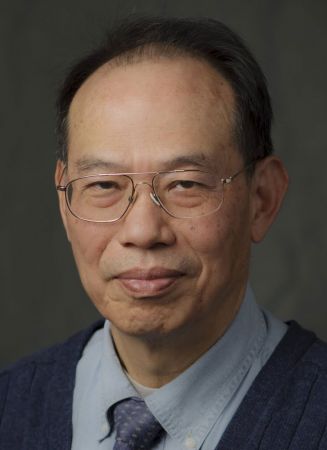James T. Hsu is professor of chemical engineering and director of the Biopharmaceutical Technology Institute, coordinating the education and research activity in the biopharmaceutical area of the Chemistry and Chemical Engineering departments at Lehigh University. The institute contributes to the creation and to the dissemination of engineering and scientific knowledge required to develop, to improve and to regulate biotechnology and pharmaceutical industry processes and products.
Hsu's research interests include bioseparation processes, aqueous two-phase polymer systems, chromatographic separations in industrial processing, and DNA amplification by polymerase chain reaction engineering.
Hsu is interested in bioseparations using selective precipitation and affinity adsorption. Affinity adsorption employs the extraordinary selectivity of the antibody-antigen interaction for the recovery of a specific protein or other bioactive molecule. His lab investigates the selection of antibodies to be immobilized and their interaction with support and target molecules.
Proteins produced by genetically engineered microorganisms are of considerable interest for use as pharmaceuticals and as medical diagnostic reagents. Thus, Hsu's lab explores aqueous, two-phase, liquid-liquid extraction using polyethylene glycol (PEG)-dextran systems for the recovery of biomolecules from complex mixtures.
The separation of chemical and biochemical mixtures by chromatographic processes is increasingly important in industrial processing. Linear scale-up of chromatography columns, based on the ratio of sample volume/adsorbent volume, gives poor resolution because of channeling, wall effects, lower intraparticle diffusivities, different mass velocities, nonlinear adsorption isotherms or the compressibility of adsorbents. We are using mathematical modeling and experimental correlations for different types of chromatographies to improve resolution.
Genetic vaccination and gene therapy is moving rapidly from the research laboratory to the clinics. Human clinical trials of direct in vivo transfer gene therapy or genetic vaccines require the development of scalable manufacturing processes that reproducibility meet the quality criteria of purity, potency, efficacy, and safety for a recombinant drug substance. Hsu's lab seeks to scale up the polymerase chain reaction (PCR) process directly. The objectives of this project are to develop a comprehensive kinetic model for polymerase chain reaction, and to investigate the effects of transport processes on the reaction required to scale up PCR.

